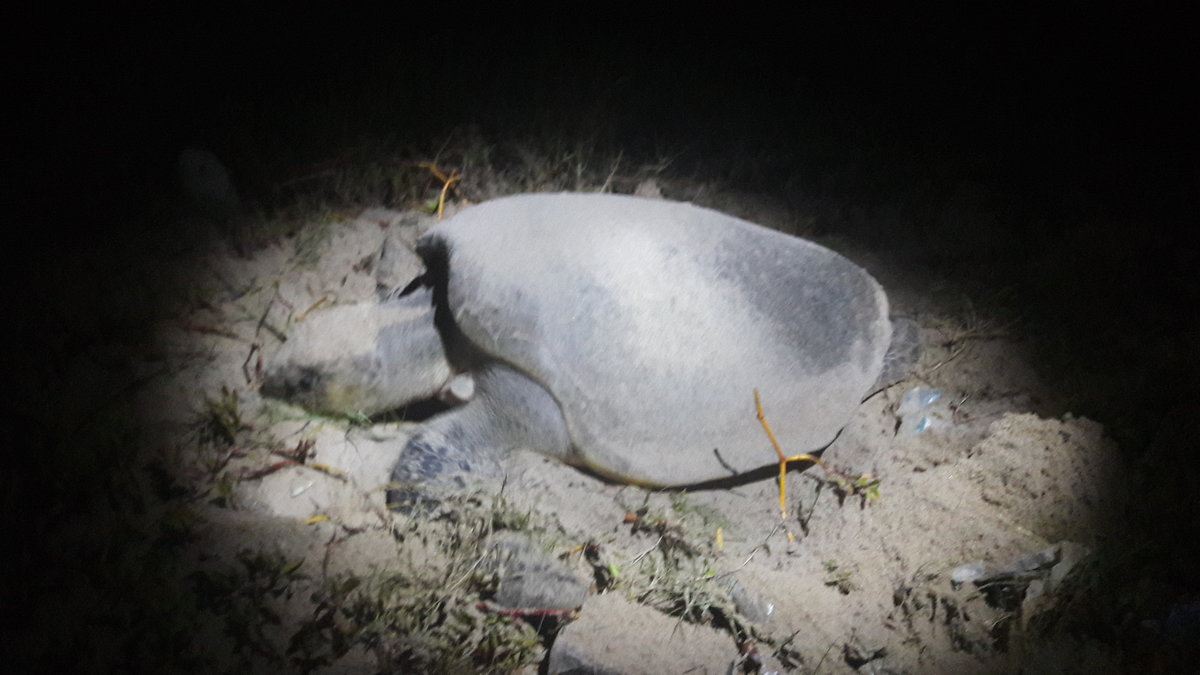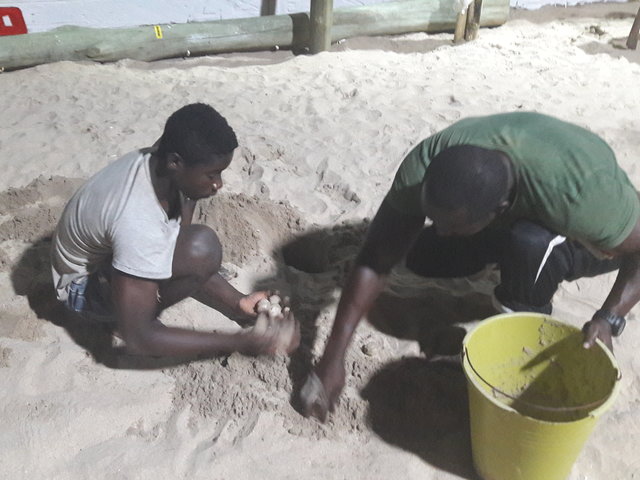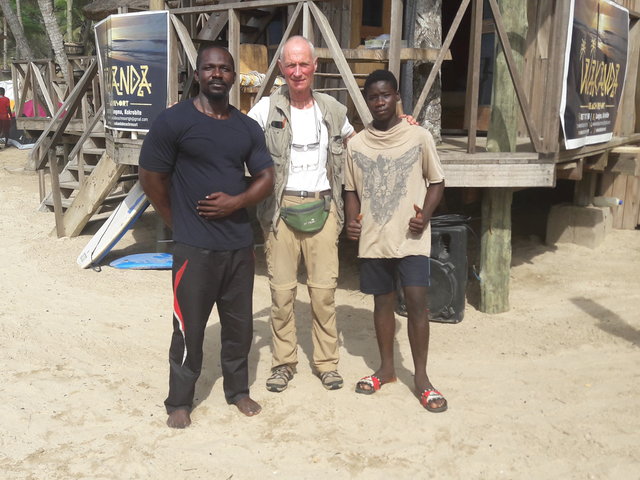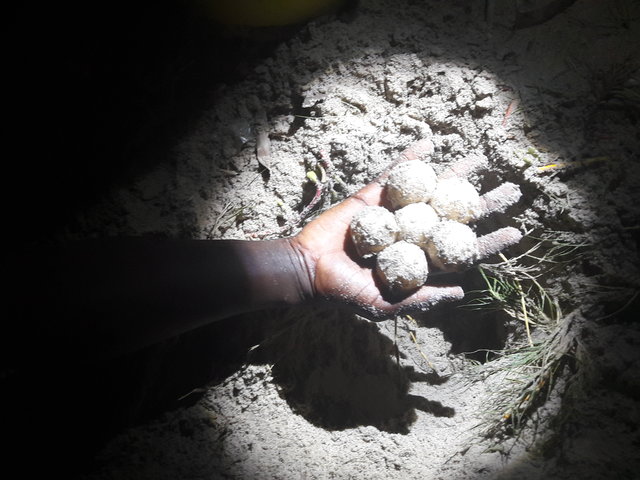Before my Ghana trip ends on October 13, I set out once again to visit the beach at Kokrobite. On our first visit a few days ago, we met Kwame and Enoch, two dedicated locals working to protect sea turtles, at the Wakanda beach resort. I hoped for a little luck to be able to observe the turtles laying their eggs this time. Especially at this time of year, they often come to this very stretch of beach to lay their eggs.
On my first walk on the beach I met Kwame again. He told me about his efforts to protect the sea turtles and their eggs from predators. For centuries, the fishermen living here have enriched their monotonous menu with turtles and their eggs. This was not a problem as long as the populations were large enough and not threatened by man-made environmental problems. Today, however, sea turtles are threatened worldwide. The beaches they have used for egg-laying since time immemorial are being developed with hotels or disappearing due to coastal erosion. Many are killed by increasingly intensive fishing or die from eating plastic waste, which they mistake for jellyfish. The coastal fishermen hardly know anything about all these ecological connections. Kwame also has no background knowledge of marine biology. Nevertheless, he acts because he has recognized the danger for these animals. When he told me that he had seen up to 8 turtles in one night, my curiosity was aroused - I am a marine biologist after all!
On the night of 10/10/2019, I went on turtle patrol with him and Enoch. Enoch is 19 years old and sold me coconuts on the beach 3 years ago. Today he works at the Wakanda resort. Our goal: to observe turtles laying their eggs and then dig them up to bury them on the grounds of the Wakanda Resort, thus putting them in a safe place. This way they cannot be found and eaten by locals. The method of digging them up and taking them to a safe place is common internationally. I know this for example from the island of Derawan / Indonesia.
Already on the way from my resort to theirs I saw a trail. But this ended at a big plastic garbage pile and led back into the sea. The turtle had obviously turned around to find a better place. Then the three of us went on. After a short time we found another track. This time it could be seen that she had gone back into the ocean after laying her eggs. The spot was very close to the fence of another resort. When we started to look for the eggs, the resort's dogs barked and the night watchman scared us away. Kwame tried in vain to explain to him what the issue was - no understanding. We continued walking and made a gruesome discovery. From a still open egg-laying hole a grinding track led in the direction of the village. Obviously the turtle had been taken while it was still laying eggs. We collected the already laid 60 eggs.
Finally we were lucky. Enoch discovered another track after a few minutes. This time the turtle had just laid her eggs, had already covered them with sand and was solidifying it with her abdomen and back flippers before crawling back into the sea. We collected her 105 eggs as well and later buried them in a safe place. On the way back, we again saw a track first leading onto the beach, but it turned back when it encountered dense vegetation. Again, the site was not suitable for egg laying.
After three hours and about 2 km of trail, Kwame and Enoch took me back to my resort. Before that, we buried the "spoils" of 165 eggs on the grounds of Wakanda. As they told me the next morning, they then saw another turtle laying eggs very close to my resort. Their 124 eggs are now safe as well.
Six turtles in three hours on a stretch of beach of about one kilometer! This clearly underlines the importance of this stretch of coast for sea turtle reproduction. On the same day, I was able to engage the English NGO Global Vision International, which has a presence in Krokrobite, for a sea turtle conservation project. In addition, I asked my long-time friend Anthony, who works as a botanist and algae specialist at the University of Ghana Legon, to interest the marine science department in this. It would be an ideal object for student fieldwork. Kwame and Enoch would of course be there as local experts. Awareness campaigns for the people from the neighboring fishing villages are among the first important actions. We will report when this project takes shape.






